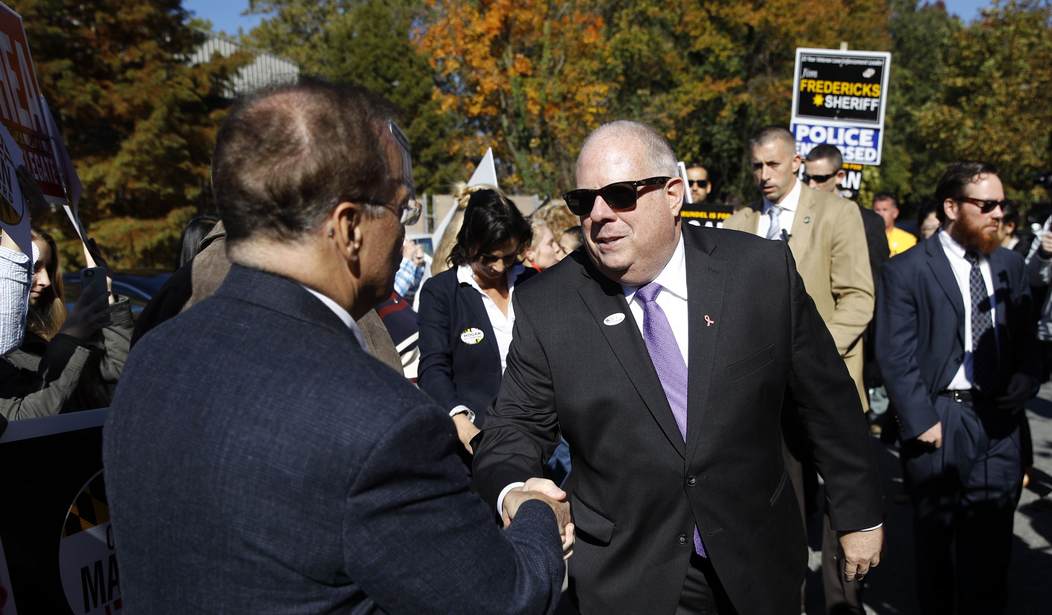We’ve been hearing a lot of noise coming from both the federal government and several states lately about the rising cost of gasoline and the need for someone to “do something about it.” Unfortunately for most of the elected officials involved in this, gas prices are determined by a complex, global ecosystem of supply and demand factors that remain almost entirely out of their control, at least in the short term. But the one portion of gas prices that actually can be directly impacted by legislative action is the amount of taxes that you pay. This has people at the White House and governors’ offices around the country who are getting nervous about angry motorists (ie. voters) and their sinking approval ratings thinking of slashing their own revenue in an effort to appease the masses. One of the first states to jump into the breach is probably going to be Maryland. They’ve already introduced a bill to temporarily suspend the state’s gas tax to bring down prices at the pump, and the measure has been put on a “fast track” with strong bipartisan support. (CBS Baltimore)
Some much-needed relief could soon be on the way for Marylanders facing skyrocketing prices at the pump.
State lawmakers on Friday introduced a piece of emergency legislation that would suspend collection of the state’s gas tax for 30 days, offering a break to residents who have been paying record gas prices.
While the bill has not yet been passed, it has bipartisan support and is being fast-tracked through the legislative process in an effort to send it to the governor’s desk for his signature next week.
Governor Larry Hogan (who has insanely decided not to run for the Senate) has already voiced support for the bill, so he’ll almost certainly sign it when it lands on his desk. Sadly, these types of “shoot from the hip” responses to complicated economic, market-driven issues rarely work out well, aside from generating a few positive headlines. A so-called “gas tax holiday” is no exception to this rule.
While I’m never one to complain about tax cuts, both state and federal governments have become addicted to gas taxes. And that sort of addiction is hard to walk away from cold turkey. Supporters of the measure in the state legislature are pointing to higher anticipated revenue levels this year as a way to sell the proposal. But those revenues only look significantly higher because they are being compared to the state’s revenue during the pandemic shutdowns, which was abysmal. Also, Maryland’s equivalent of a “rainy day fund” is basically depleted and federal COVID relief dollars are running out fast.
Even the political sugar rush from a gas tax holiday will be short-lived at best and it will come with a nasty aftertaste. The current proposal would only suspend the gas tax for thirty days. Does anyone honestly believe that the global oil markets, not to mention the Russian sanctions, will be stabilized in one month? So the motorists of Maryland will wake up one day and see that the prices at the pumps will have dropped by 36 cents per gallon. When they fill up their tank for the week they’ll save four or five bucks and perhaps they’ll feel a little better for a moment. But then, 30 days later, the prices will jump by 36 cents overnight. How do you suppose that’s going to make them feel? Don’t forget that it’s the last impression you leave people with that’s the one they remember.
At that point, they’ll be forced to go back to the blame game that’s currently playing out. Both the Senate President and the House Speaker released statements invoking “Vladimir Putin and the Russian oligarchs.” They went on to blame the “pain at the pump” on “Russian aggression.”
That’s an easy soundbite to deliver, but I’m fairly sure the majority of people who actually have to pay for their own gasoline know that it’s a smokescreen. Gas prices were rising long before Russia invaded Ukraine and Russian supply lines were cut off. In fact, they’ve been rising steadily for most of Joe Biden’s presidency. Vladimir Putin could pull every one of his troops out of Ukraine today and have the sanctions lifted and all that would happen is that gas prices might rise a bit more slowly. And if Putin does either pull out or lose his war, American politicians will lose the fig leaf they are currently hiding behind.
If you want to see gas prices go back down to where they were during almost all of Donald Trump’s presidency, you need to implement policies that allow the oil and gas industry in America to return to 110% production capacity. And if we start seriously exporting oil and natural gas to Europe in a way that robs Putin of that energy market, you’ll be doing more damage to the Kremlin than any military offensive could manage.








Join the conversation as a VIP Member